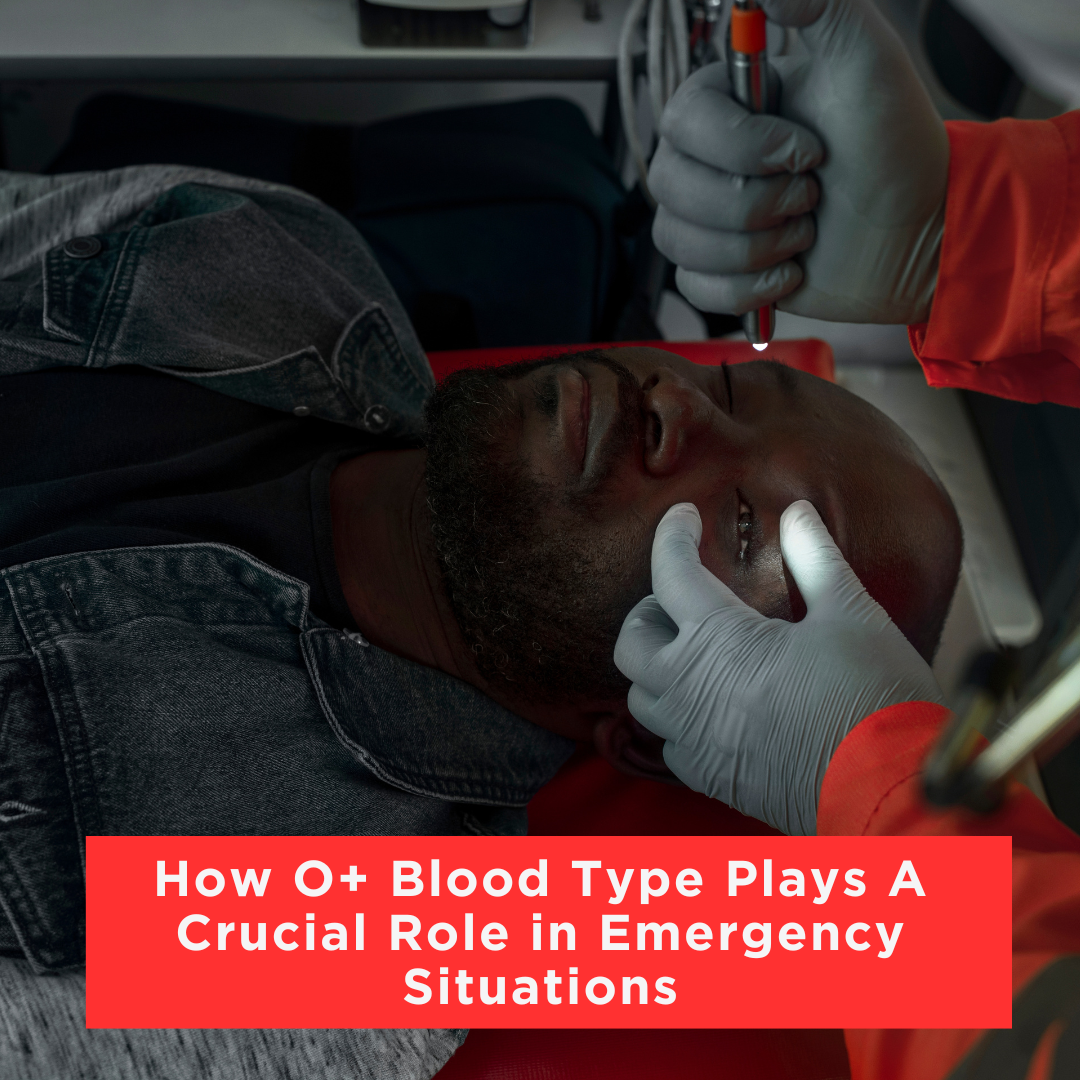During critical emergencies, timely action is crucial and imperative. That is why having quick access to your blood type can significantly accelerate medical interventions and empower healthcare providers to deliver timely and appropriate care. Within the domain of blood types, O+ (O-positive) is widely acknowledged as a widespread and significant blood group. With approximately 38% of the global population belonging to the O+ blood type, its importance in healthcare systems worldwide cannot be overstated. Thus, it becomes paramount to understand the unique characteristics of the O+ blood type and the necessity of conducting blood type tests.
This article aims to shed light on the O+ blood type, its distinguishing traits, compatibility, and the reasons for testing.
The O+ Blood Group
The O+ blood group refers to a specific blood type classification within the ABO blood grouping system. They include A, B, AB, and O. In this system, blood is categorized into different types based on the presence or absence of certain antigens on the surface of red blood cells. In the case of the O+ group, individuals have red blood cells that lack both the A and B antigens but possess the Rh antigen, also known as the Rh factor. The O+ blood type is commonly referred to as “O positive” due to the presence of the Rh antigen. The O+ blood group is widely prevalent, making it crucial for blood transfusions and emergencies. Its abundance ensures a higher likelihood of finding compatible blood donors in times of need.
Characteristics of the O+ Blood Group
- O+ blood has no A or B antigens and is thus “O” blood. The (+) means that the Rh antigen is present.
- O+ blood is a universal red blood cell type, meaning it can be used in emergencies, such as traumatic bleeding or other types of emergency transfusions.
- Since it is compatible with both O+ and O-blood types, O+ can serve as a universal donor for Rh-positive recipients, increasing the availability of blood for medical treatments.
- People having O+ blood type can only receive blood from O+ blood donors, and O-negative (universal) donors.
- Type O patients can only receive type O red blood cell transfusions, so O+ blood is becoming more widely used in emergencies and is often one of the most needed red blood cell donations.
Related post: Do not overlook the importance of a complete blood count test
The Importance of Testing
Testing for blood type, including O+, is an essential procedure that determines an individual’s blood group. Here’s why it is important to get tested:
Related post: Genotype and blood group increases your quality of life
Blood Transfusions: Accurate blood typing ensures compatibility between the donor and recipient, reducing the risk of transfusion reactions and improving the success rate of the procedure. Knowing your blood type, particularly if you have O+ blood, can help medical professionals respond swiftly during emergencies.
Pregnancy and Childbirth: Determining the blood type of expectant mothers, especially those with O+, is crucial for managing potential complications during pregnancy. If the mother has Rh-negative blood and the baby has Rh-positive blood, there is a risk of hemolytic disease in the newborn. Regular testing can identify such situations, allowing for appropriate interventions to ensure the health of both the mother and the baby.
Organ and Tissue Transplants: Blood type compatibility is a critical factor in organ and tissue transplantation. By knowing your blood type, including O+, medical professionals can match organs from deceased or living donors, increasing the chances of successful transplantation and minimizing the risk of rejection.
Emergency Situations: In times of medical emergencies, knowing your blood type, especially if you are O+, can greatly accelerate the treatment process. It enables swift access to compatible blood, ensures timely transfusions, and helps identify any potential risks associated with transfusions.
But What Happens When You Receive Blood Of The Wrong Type?
Receiving an incompatible blood type during a transfusion can lead to a transfusion reaction. While mild reactions are usually not life-threatening, prompt medical attention is still necessary. However, severe transfusion reactions can have fatal consequences. Symptoms of a transfusion reaction may include warmth or heat at the transfusion site, fever, chills, back and side pain, reddish urine, and even kidney failure. Tragically, in certain cases, receiving a blood transfusion with an incorrect blood type can result in death.
Here are other risks associated with receiving the wrong blood type:
Immune response: If you receive blood that is not compatible with your blood type, your body produces antibodies to destroy the donor’s blood cells. This process causes the transfusion reaction. The blood that you receive in a transfusion must be compatible with your own. This means that your body does not have antibodies against the blood you receive. If you receive blood that is not even partially compatible with your own, your body produces antibodies to destroy the donor’s blood cells. This can cause a serious immune response that attacks the donated blood cells, destroying them.
Hemolytic transfusion reaction: A hemolytic transfusion reaction can occur if you receive the wrong type of blood during a blood transfusion. This is a rare but serious and potentially life-threatening reaction. The immune system attacks the donated blood cells, destroying them. Symptoms of a hemolytic transfusion reaction include fever, chills, chest or back pain, bleeding, an increased heart rate, shortness of breath, a rapid drop in blood pressure, and/or kidney damage.
Clumping of red blood cells: When a transfusion reaction occurs, an antibody attaches to antigens on several red blood cells. This causes the red blood cells to clump together and plug up blood vessels. Then the cells are destroyed by the body (a process called hemolysis), releasing hemoglobin from the red blood cells into the blood. Hemoglobin is then broken down into bilirubin, which can cause jaundice.
Knowing your blood type opens up a world of possibilities in healthcare. It allows healthcare providers to identify compatible blood for transfusions, reducing the risk of adverse reactions and promoting successful outcomes. Additionally, understanding your blood type can aid in the early detection of potential complications and enable personalized treatment plans tailored to your specific needs. To ensure the prevention of such risks, undergoing blood type testing before transfusion is crucial. By taking the initiative to get tested and familiarize yourself with your blood type, you actively contribute to the availability of safe and compatible blood for transfusions. This not only safeguards the well-being of expectant mothers and infants but also enhances the success rates of organ transplants and enables prompt emergency medical interventions.
At our Medbury diagnostic centers, we prioritize your comfort while conducting the necessary tests to provide you with comprehensive knowledge about your blood type. Our dedicated team of medical professionals understands the importance of accurate blood typing and its impact on patient safety. We strive to create a comfortable and welcoming environment during the testing process, ensuring your peace of mind and confidence in the results.
Need An Affordable Full-Body Screening Test? Save money and ensure sound health today!








No Comments